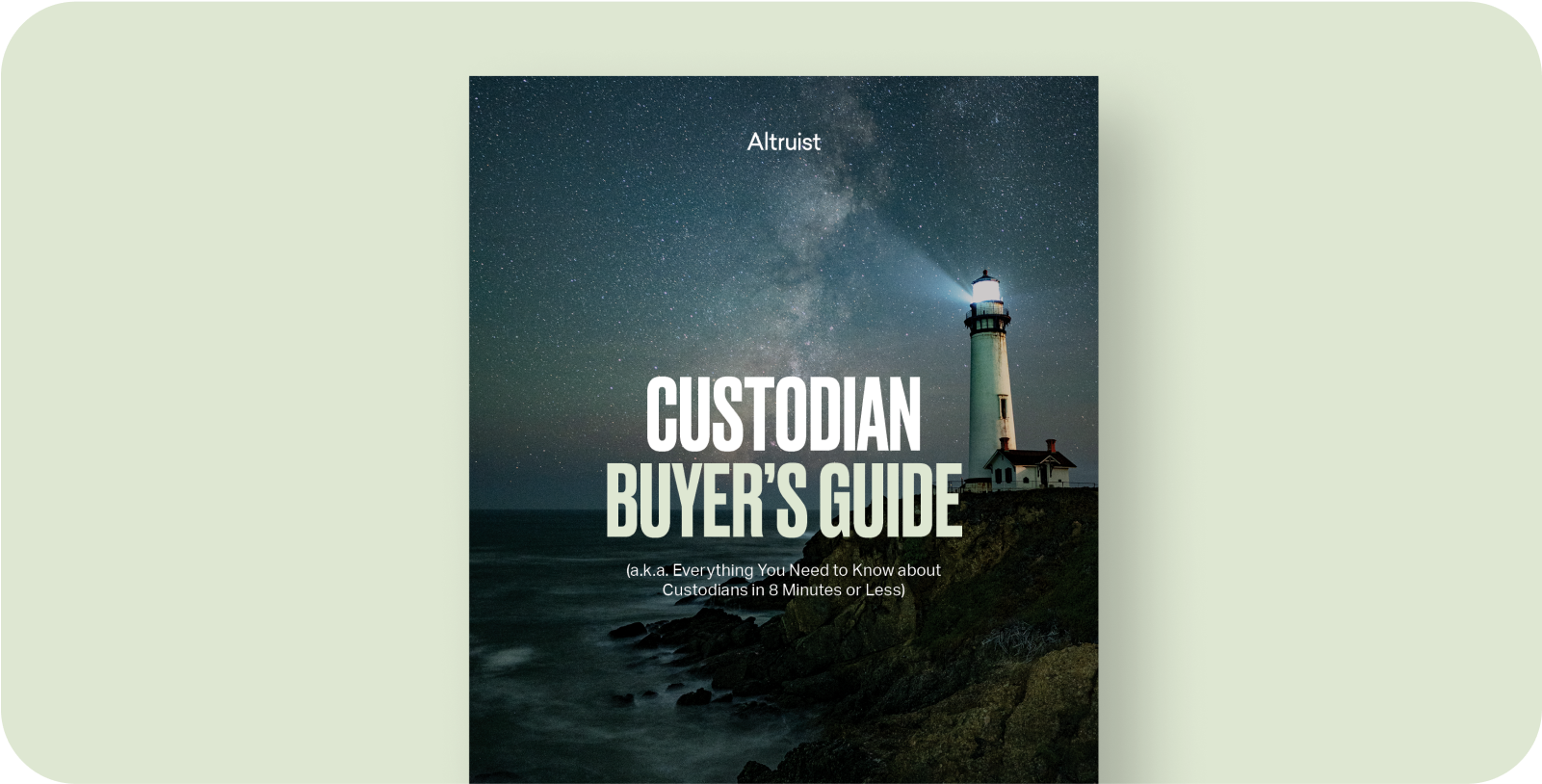End-of-life planning is extremely important (if you need further evidence, consider the sibling rivalry over their father’s media conglomerate in HBO’s Succession).
Although most folks aren’t planning to pass down multi-billion dollar enterprises, 83% of investors today are worried about how their wealth will be allocated and transferred upon their death.
As an advisor, offering estate planning to your clients can help them prepare for the largest financial event of their lives — a service that 92% of clients expect from their financial advisor but only 22% say they receive.
How to choose an estate planning solution
A comprehensive estate planning process isn’t just about selecting who gets what after you pass; it also includes drafting important legal documents, like advanced healthcare directives and powers of attorney, along with your will, trust, and beneficiary designations.
Because of this, to do estate planning correctly, clients and their advisors typically work with a designated estate planning attorney to ensure that the administrative aspects of their plan are created and executed correctly.
As a result, financial advisors who wish to offer estate planning services as part of their holistic suite of offerings will need a partner who is legally qualified to perform these tasks. Advisors have two common options for partnering with qualified providers.
Traditional estate planning attorney
One of the most common ways financial advisors have implemented estate planning services into their practice is by partnering with a trusted attorney specializing in end-of-life arrangements.
If you can find an attorney that you work well with, there’s potential for a mutually beneficial relationship — you provide the deep understanding and historical context of your client’s financial goals — while the attorney can exercise their practice and draft the necessary legal documents. Working with an attorney can also lead to mutual referrals since there is a common overlap in the needs of attorney-advisor clients.
Tech-enabled estate planning services
In recent years, advisors have also had the option of leveraging a third-party estate planning platform to service their clients without missing out on the critical components of a well-organized estate plan. Tech-enabled platforms can provide convenience in the process and usually give advisors visibility via their own accounts to help facilitate their client's process.
Today’s top platforms — Vanilla, Wealth.com, and Trust & Will, to name a few — typically have in-house attorneys who have helped generate document templates and are often on standby to support you and your client with 1:1 advice, ensuring that you receive the same quality of guidance as you would if you used a traditional estate planning attorney.
What you can do to support your clients
As your client’s financial advisor, you have an unparalleled understanding of their complete financial picture. And based on the client, you may have been by their side for years, if not decades. So, while you may not be able to draft their estate legal documents yourself, your role as a trusted advisor and presenting tax-optimized options is critical in ensuring the estate plan they set up is in their best interest.
The first part of the planning process is simply understanding if they already have an estate plan or at least have heard about the importance of setting one up. Your clients will look to you to educate them on the material impacts of having a well-prepared estate plan. Once you’ve discussed the merits of creating one, you can present options for setting one up online with a partner platform or through one of your estate planning attorneys.
During the second stage of the planning process, all of the associated legal documents will be drafted and up for review by the client. But like most of us, your clients may not be fully prepared to understand the complexities of the documents that an attorney drafted. Your ability to review the documents with your client and flag any missing information, poorly written claims, or misalignment with your agreed-upon financial plan can provide extra comfort to your client. Clarity is always best to avoid possible family infighting, unintended probate, and headaches down the line if you have to fix certain claims retroactively. Helping your client review the fine print can catch mishaps before they’re finalized.
Finally, advisors play a critical support role in ensuring that the recommendations made in the legal documents are followed through, including the transfer of funds into certain accounts and titling of assets. A common and unfortunate mistake people make is forgetting to transfer funds to the estate plan and having their estate end up in probate even after all their work and preparation of creating their plan.
Key benefits of offering estate planning services
Your decision to offer estate planning services can be mutually beneficial — the client can receive a more holistic view of their future financial arrangements, while you can build stronger relationships with your clients and their beneficiaries. Here are three key benefits of estate planning.
Providing full-service advisory solutions
Clients expect a full-service offering from their advisor rather than working with multiple service providers. As their advisor, you already have a detailed understanding of their living financial goals, and it makes sense to use your relationship as an opportunity to provide even greater value to your clients by helping them decide on what to do with their wealth after they die. You’re the best person to strategize tax-optimized solutions for your clients to preserve the wealth you’ve built together and pass it down to their heirs.
Creating multi-generational relationships
Advisors who offer estate planning have a natural pathway to building trust with their clients' heirs. This dynamic is important, as studies suggest that over 80% of children don’t plan to stay with their parents' financial advisors upon their death.
Using estate planning to deepen relationships with their clients' beneficiaries before they die can create a strong foundation for the estate plan's implementation. The stakes have never been higher, with an expected $84 trillion wealth transfer occurring over the next twenty years from advisors' clients to their children and charities.
Deepening trust with your clients
Estate planning can be a very emotional and intimate experience. Clients want to work with someone they can trust to guide them through the process.
While you’ve already earned your client’s trust through your existing relationship, estate planning discussions can convey that you’re knowledgeable about the full lifecycle of financial planning and care about your client’s legacy even after they’re gone.
Empowering your clients with holistic guidance
Your clients come to you to help manage their wealth during their lives, but end-of-life planning can surprisingly be the most significant financial decision a person ever makes.
By incorporating after-life planning into your firm, you can build deeper trust with your clients, offer them a one-stop solution for their full financial needs, and position yourself as a multi-generational partner for their family's financial needs.













